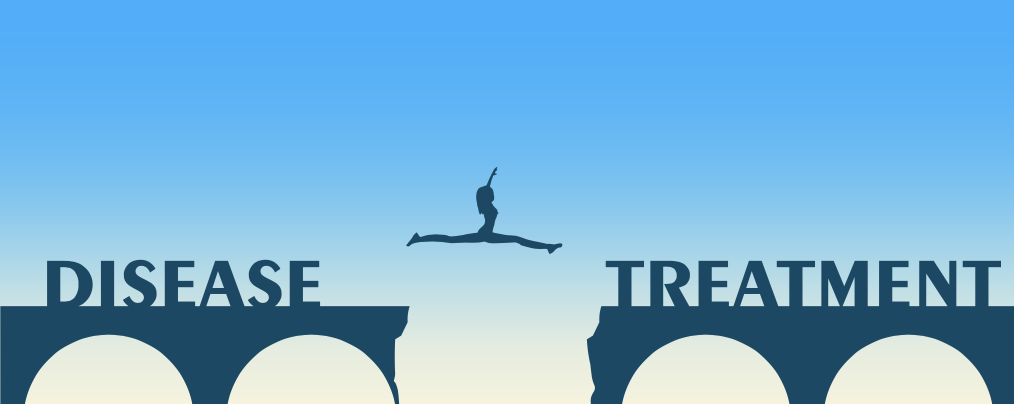
Millions of Americans are affected by depression every year. It can cause disruptions in their daily lives, create problems in their relationships, and can even be life-threatening if suicidal thoughts develop. And yet, there are countless people who don’t seek treatment. Although each individual has their own reasons for this, a number of specific issues are consistently cited as barriers to treatment.
In a study that lasted from 2008-2014, over 20,000 people who had been diagnosed with major depression were surveyed to further find the top reasons for not seeking mental health treatment or counseling. It included a list of the most frequent justifications, and participants could select one or more reasons they personally avoided seeking professional help. Take a look at their responses and get suggestions for overcoming some of these common barriers to treatment.
-
Cost & Logistics
Financial concerns are some of the most common reasons people decided not to be treated for their depression. In fact, 47.7% of participants in the study chose “couldn’t afford the cost” as one of the justifications for avoiding treatment. Many others shared worries about health insurance coverage, whether it was a lack of adequate coverage (11.7%) or no coverage at all for the services they’d need (6.5%).
The practical necessities required to get treatment can also be a challenge for many people with depression. Often combined with cost, common reasons for not seeking treatment include logistical concerns like:
-
- Not knowing where to go for service (16.7%)
- Being too busy (14.2%)
- Concerns about the effects on their job (8.1%)
- Lack of transportation or nearby treatment options (5.8%)
These challenges are not always easy to resolve, especially for people who don’t have access to a car or public transportation or who work jobs that are difficult to take time off from for medical appointments.
For those who are struggling with the costs of treatment and/or not knowing how to access it, it’s important to increase awareness around alternative options. Those who don’t have any health insurance face the biggest hurdle, but there are free or low-cost therapy options at some clinics, including sliding scale fees based on income. These services may not be widely advertised, so reach out to local resources to find help in your area. You can also call SAMHSA’s National Helpline at 1-800-662-HELP (4357) for their confidential and free treatment referral service.
-
Stigma
“What will other people think?” That’s something that crosses the minds of many people suffering from depression. Unfortunately, it also causes many of those people to avoid seeking the treatment they need.
The stigma of mental illness has lessened in recent years; more people are aware of how common issues like depression and anxiety are, and there is more support for those who need help. However, there are some who still carry negative attitudes towards mental illness or believe that people should be able to overcome depression on their own.
According to the study, some of the reasons participants avoided treatment were because they:
-
- Thought they could handle it without treatment (22.2%)
- Were worried about the opinions of others (11%)
- Didn’t think treatment would help (10.9%)
- Had concerns about confidentiality (9.7%)
- Didn’t want others to find out (6.5%)
One bright spot is that younger generations seem to be more open to getting treatment. In a different study from Kaiser Permanente, researchers found that people with depression under the age of 44 were twice as likely to get treated as those over 60. And while only 7% of people over 75 were likely to start counseling, 25% of people ages 18-29 were likely to seek the same type of treatment.
Don’t let a fear of being labeled as “mentally ill” stop you from getting the treatment you need. You do not need to be ashamed of your depression, and it isn’t something you can just “get over.” Mental health is just as important as any other health issue, so seeking treatment is the responsible and sensible thing to do.
-
Treatment Concerns
The effects of treatment were also included among the study participants’ concerns. Some people are wary about seeing a therapist for the first time or worried about the possible side effects from medication. Some study participants noted that they didn’t seek treatment because they thought they might be committed or forced to take meds (15.2%) or they didn’t think the treatment would actually help (10.9%).
There’s nothing wrong with having these concerns about depression treatment. It’s true that some treatments don’t have very high rates of effectiveness. Antidepressants can also have significant side effects, such as nausea, weight gain, insomnia, constipation, and decreased libido. Some side effects lessen over time, or patients find ways to cope with them. But even then, the benefits of the medication may not kick in for weeks or even months.
Instead of avoiding treatment due to these concerns, consider looking at alternative depression treatment options. For example, Ketamine Infusion Therapy has an 83% success rate in treating mood disorders. There are very few minor side effects, and the benefits are often felt after just three infusions. It’s safe, it’s effective, and it doesn’t take long to complete the treatment.
Barriers to depression treatment are common, but you shouldn’t let them stand in your way. Get past these obstacles and find relief from your symptoms by seeking the right treatment for your needs. You can learn more about Ketamine Therapy by contacting us for a free phone consultation today.

